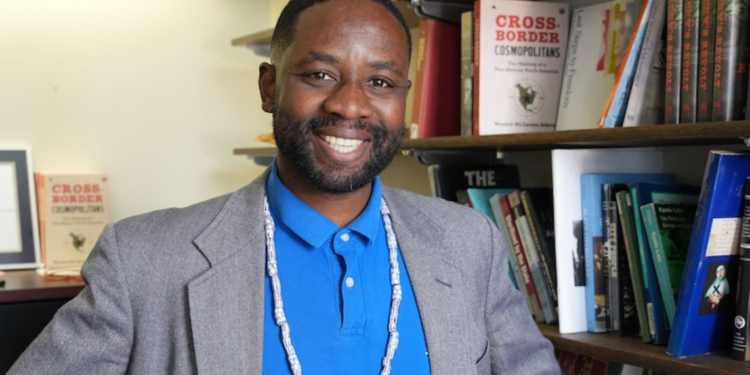Dec 2, 2024 Story by: Editor
On November 20, Wendell Nii Laryea Adjetey, an Associate Professor and William Dawson Scholar in McGill University’s Department of History and Classical Studies, was awarded the 2024 Governor General’s History Award for Scholarly Research. This recognition, granted by Her Excellency Mary Simon, Governor General of Canada, honors Adjetey’s 2023 book, Cross-Border Cosmopolitans: The Making of a Pan-African North America. The award, Canada’s highest accolade in history and heritage, is administered by Canada’s National History Society.
Reflecting on the achievement, Professor Adjetey shared, “My parents have a seventh- and sixth-grade education, so this award means much to them and me. It’s also a great honor that I share with my African-Canadian elders and their forebears who came of age in a Canada virulently opposed to Black people, despite all that Black communities had sacrificed for Crown and country.”
The book delves into African American history between 1900 and 2000, with a particular focus on global Black liberation movements. It draws extensively from archival records in Canada and the United States to explore how Black North Americans of American, Caribbean, and Canadian descent united to foster Pan-Africanism, aiming to liberate Black communities across the Americas and Africa.
“McGill’s Department of History and Classical Studies is absolutely delighted to see our esteemed colleague and friend Wendell Nii Laryea Adjetey honored in this way,” said Professor Nicholas Dew, Chair of the Department. He added, “Cross-Border Cosmopolitans is an important book, which redraws the map of modern Canadian history in several ways, and we very much hope it reaches as wide an audience as possible.”
In discussing the central theme of his work, Professor Adjetey emphasized the transformative power of collective action. “Solidarity and resistance in the face of discrimination, repression, and hostility are at the core of Cross-Border Cosmopolitans.” He highlighted that the cross-border unity among Black communities in Canada, the United States, the Caribbean, and Africa exemplifies the pivotal role of collective efforts in achieving social change, democracy, and liberation.
“That members of Black communities…leaned on one another across borders illustrates the extent to which ‘people power’ is integral to social change, democracy, and liberation from systems of domination and exploitation,” he remarked. Source: McGill

















